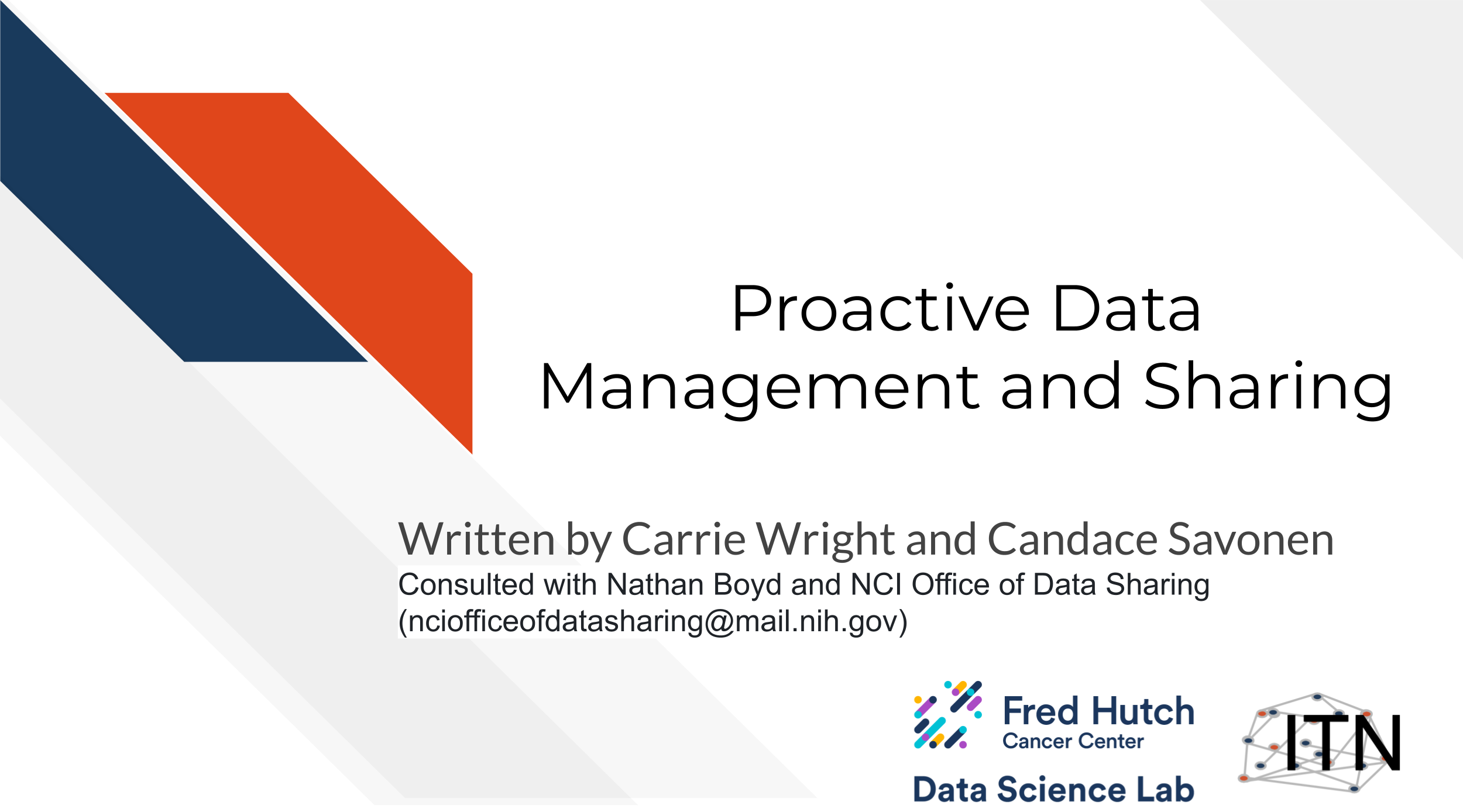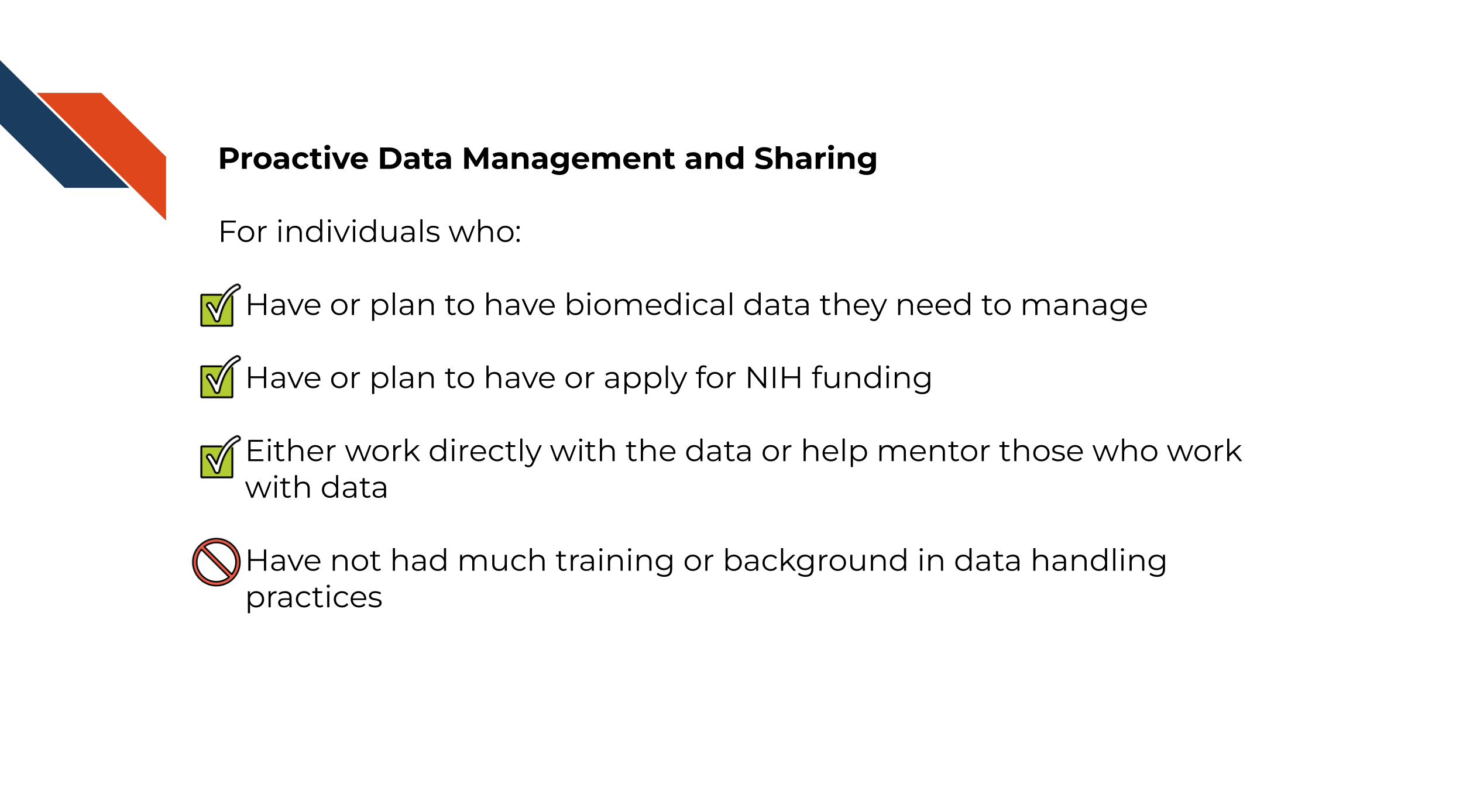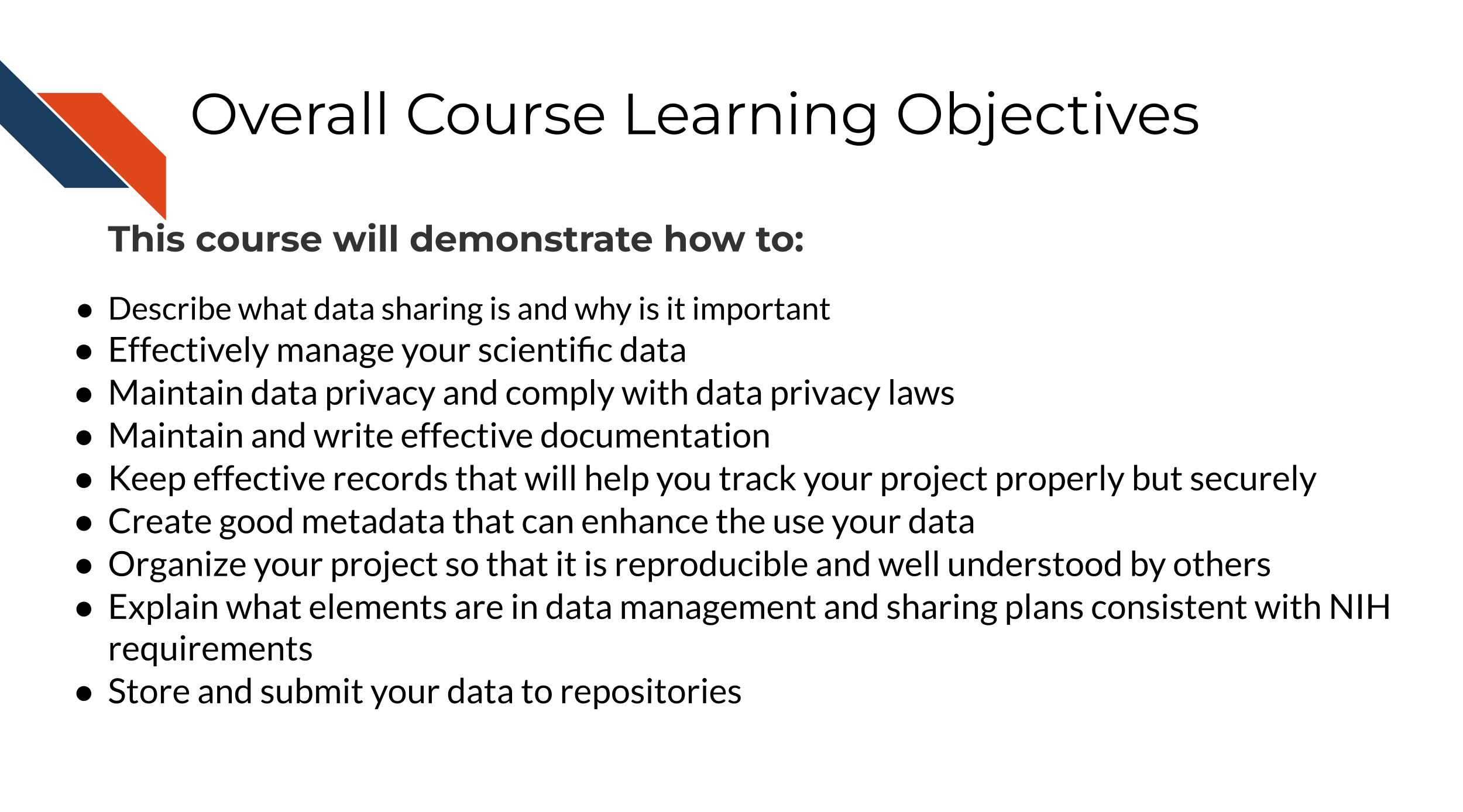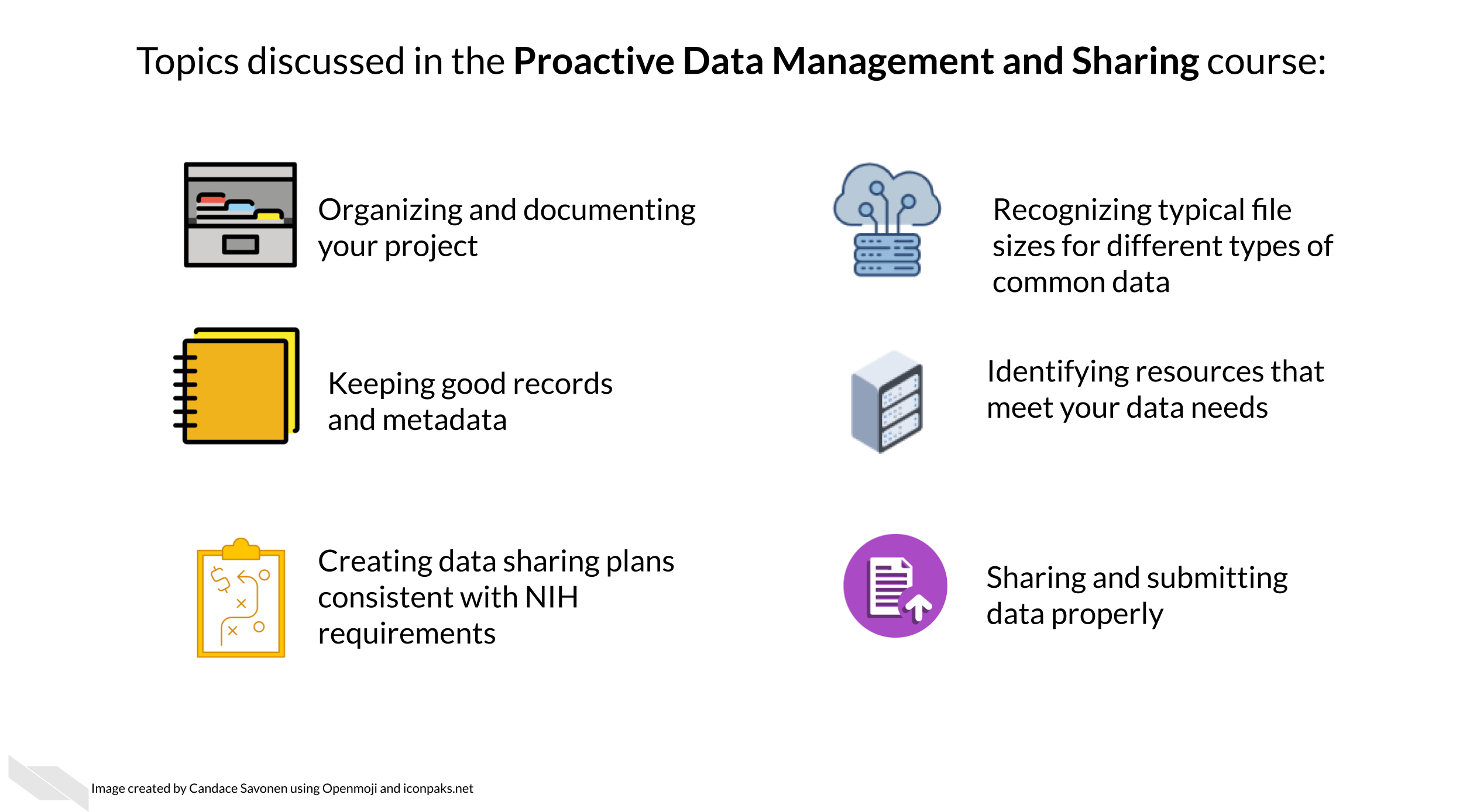
Chapter 1 Introduction

1.1 Motivation
The cancer research discipline has evolved into an increasingly complex mix of datasets. Research projects are typically cross-disciplinary and contain many types of data in various formats. They often involve multiple collaborators generating data across different sites, with different data standards and infrastructure used to generate those data. Therefore, it is more important than ever to be well-versed in the best practices of data management and sharing.
Proper data management and sharing is a necessity for cancer research projects to succeed in positively impacting cancer care. Now, it is more important than ever to understand the appropriate methods and best practices in data management and sharing as you plan for your research. The NIH and other cancer research funders have implemented mandates that require you to proactively plan to manage and share your data.
As a member of the cancer research community, it is imperative that you maintain well-documented metadata and properly share your data. This will benefit you, your colleagues, and the larger community by broadening the reach of your data, enabling data reuse by others, and ultimately accelerating the pace of scientific discovery. This course aims to serve as a starting point to cover the basics of good data management and sharing practices.
1.2 Target Audience
The course is intended for individuals in biomedical science labs and program managers who want to learn the best practices and techniques for data management and sharing.

1.4 Curriculum

How to use this course: This course contains high-level concepts for data management and sharing and can be used as a reference of suggested best practices and associated skills needed for data management and sharing in biomedical research.
Keep in mind: Scientific data and research projects come in many different forms, and some content in this course may not apply, especially as the research landscape evolves to adapt and support new technology, methods, and techniques. Therefore, the goal of this course is not to prescribe rigid rules for how to conduct research, but rather serve as a guide to approach data management and sharing in the spirit of the FAIR principles (Findable, Accessible, Interoperable, Reusable). We encourage you to continue to consult with data management experts to suit the needs of your particular project and/or research goals.
Disclaimer: This course material is for instructional use only and is not a substitute for legal or ethical advice. The findings and conclusions in this course are those of the authors and do not represent official guidance from the National Institutes of Health.
